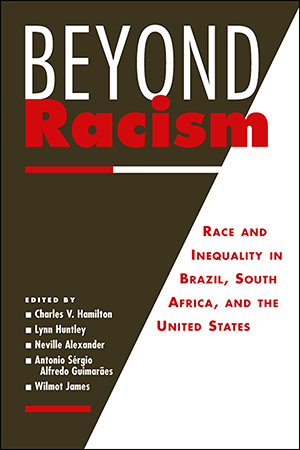
- 2001/629 pages
- Published in association with the Southern Education Foundation
Beyond Racism:
Race and Inequality in Brazil, South Africa, and the United States
Hardcover: $65.00
ISBN: 978-1-58826-026-0
Paperback: $26.50
ISBN: 978-1-58826-002-4
This provocative comparative study explores issues of race, racism, and strategies to improve the status of people of African descent in Brazil, South Africa, and the United States.
What constitutes "race"? Is Brazil in fact a "great racial democracy"? What is the significance of color in postapartheid South Africa? How will the changing U.S. demographics affect efforts to combat discrimination? The authors provide in-depth information about each country, together with probing analyses of crosscutting themes and trends. They present a rich collage of ideas and information designed to encourage critical thinking—about race relations, human rights, democratization, national development, and other equally crucial topics.





